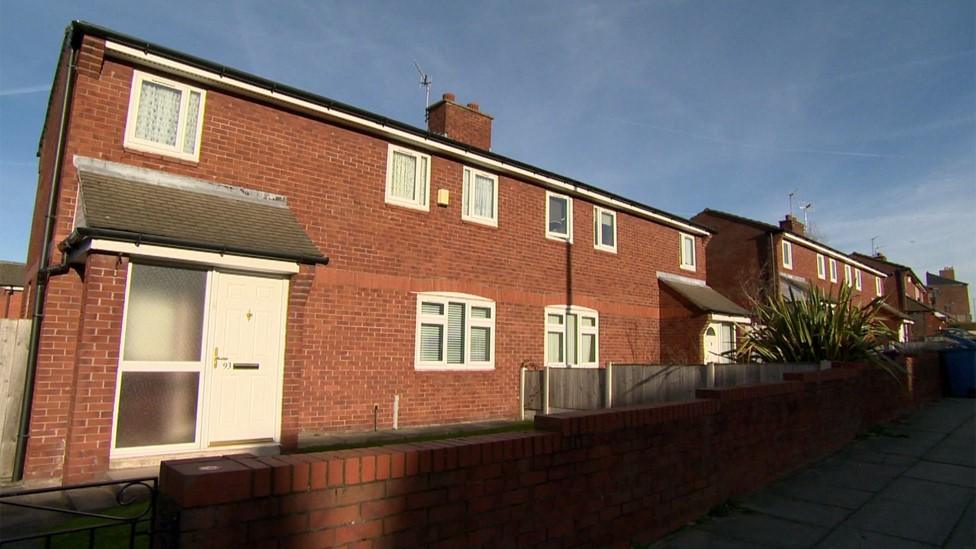North West affordable homes number '70% off-target' since 2015
- Published

Greater Manchester mayor Andy Burnham said 50,000 affordable homes would be built across the conurbation by 2038
The number of affordable homes built across the North West since 2015 is less than a third of what is needed, BBC analysis shows.
Fourteen thousand affordable homes were built across the region, but council forecasts say more than 42,600 are required.
Trina Watson, from the Tenants' Union, said the number built "pales in comparison" to the need.
The government said providing fair social housing was a priority.
It plans to build 250,000 homes by 2022 across the UK, including homes for social rent.
But national figures show there are only three areas in the north-west where the affordable homes target has been met - Liverpool, Wigan and Halton in Cheshire.
Councils in England are obliged to compile Strategic Housing Market Assessments (SHMA) that calculate the number of affordable homes their area needs each year.

What is affordable housing?
Social housing, owned by councils or housing associations. The rent is controlled by the government and is linked to average local incomes and the value and size of the property.
'Affordable rent', owned by private landlords with a 20% discount off the market rent.
'Affordable home ownership', homes sold with a 20% discount off the market value.
'Shared ownership', in which occupiers own a pay a mortgage on a portion of the property's value, whilst paying rent to a landlord who owns the rest.

The number of affordable homes built in east Cheshire between April 2015 and April 2018 is 2,873 fewer than the 4,203 homes than Cheshire East Council predicted were needed over that time in its SHMA, written in 2013.
The number built in Wirral is 2,576 fewer than its forecasted need, and in Manchester the figure is 2,600 less.
In Barrow-in-Furness just ten affordable homes were built between April 2015 and April 2018.
Cheshire East Council said it had "exceeded" a newer target for affordable homes, which was calculated using a different methodology and approved by a government inspector.
Wirral Council said new government projections indicate their need for new housing is lower.
"We also do everything within our power to encourage developers to build affordable housing", a spokesperson said.
Greater Manchester mayor Andy Burnham said 50,000 affordable homes would be built across the conurbation by 2038 to tackle the region's "housing crisis", in plans outlined last week.
Ms Watson said the shortfall was causing more people to be "pushed into unsuitable unsafe private rented houses".

Why aren't enough affordable homes being built?
Phil McCann, BBC Sunday Politics North West
It's clear that there's a need for more affordable housing, but the obstacles to building it are complex.
Forty years ago, 40% of all newly built houses were council properties. In 2017, it was less than 2%.
Since 2012, rules have capped the amount councils can borrow to build new ones, and housing associations have had difficulties borrowing the money they need to build too.
A lot of affordable housing is actually built by private developers, either in partnership with councils or in exchange for planning permission to build more lucrative housing.
But there are often concerns about the time it can take for those developers to build, and in some cases they can argue that building or contributing to the building of affordable units would render their developments unviable.
But the government has removed the cap on borrowing for council house building, and has set aside £2bn to build new homes over the next ten years.
